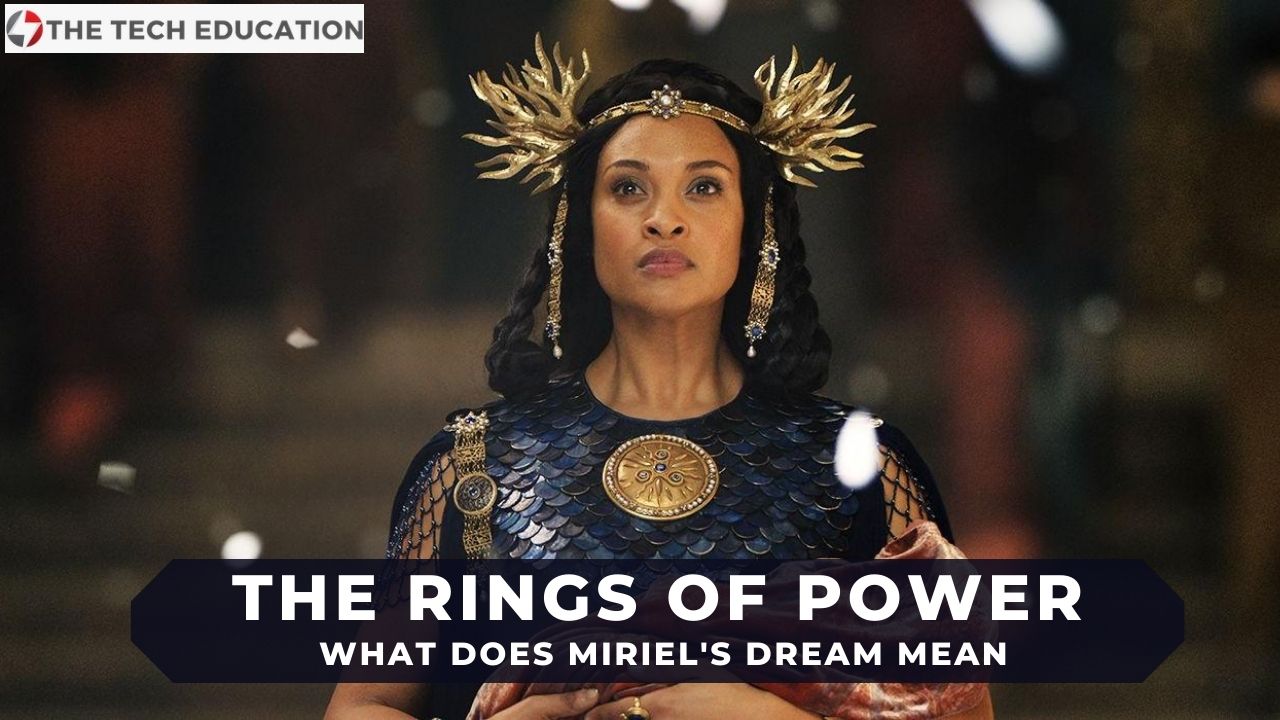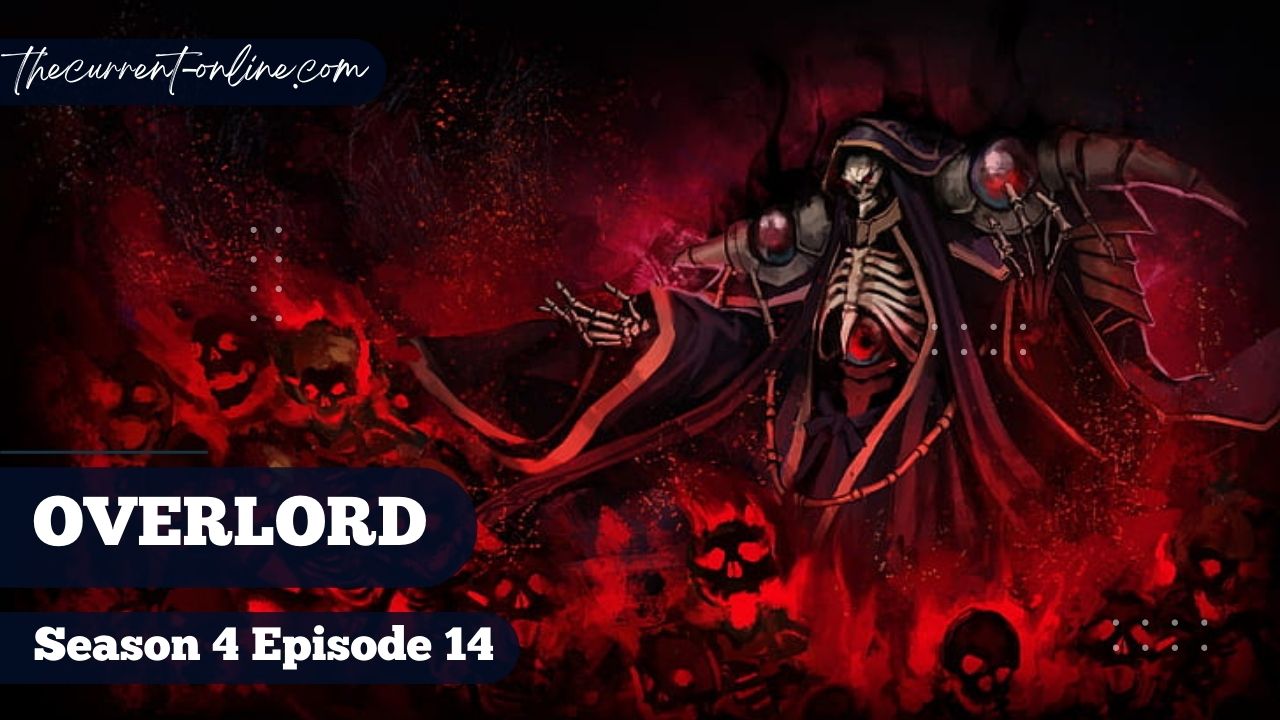“The Faithful think that when the White Tree’s petals fall, it is no idle thing.”
The latest episode of The Rings of Power begins with a dream scene depicting Queen Regent Miriel’s (Cynthia Addai-Robinson) worst fear, witnessing a massive ocean wave rise on all sides of the island and destroy their nation. With everything we know about Numenor and its people from J. R. R. Tolkien’s mythology, this prophecy foreshadows many future occurrences. The show has already highlighted warning signals regarding the Fall of Numenor, and the more profound lore informs us about some of these characters’ prospective futures.
The History of Numenor
The Island Kingdom of Numenor is one of the essential components of Tolkien lore, both as a society and as a greater menace to evil than the average Middle-Earther. Their civilization centered around the Valar, the elves who resided in the everlasting regions to the West and handed the island to the Edain, men who fought alongside Elrond’s (Robert Aramayo) brother Elros against Morgoth in the first age. Elros was the first King of Numenor, and being a half-elf who chose to become mortal, he built his kingdom on the foundation of their relationship with the elves. In Episode 3, we see a depiction of Elros and Elrond in the Nmenórian Hall of Logs, with the men of the island communing with the company of elves visiting Elrond. The elves bestowed upon Numenor birds, flora, abilities, knowledge, and the White Tree of Nimloth. After the elves’ gifts assisted them in creating their kingdom, they began building ships and became mariners with a reverence for the sea, with many declaring, “The Sea is always right.”
While Nmenórian culture began with a strong regard for the Valar elves who gave them their island home, the jealousy and greed of certain rulers through millennia led to a deep hatred and animosity against all elves. Tar-Palantir (Ken Blackburn), Miriel’s father, was the first king in a long time to try to repair relations with the elves in the West. Tar-reign Palantir is marred by revolt against The Faithful, who supported him, and corruption within his ranks due to the intimidating influence of the anti-elf faction The King’s Men. In the most recent episode of The Rings of Power, viewers will see that the storyline of the kings of Numenor closely follows the events of Tolkien’s literature. Galadriel (Morfydd Clark) climbs the tower where the King is supposedly confined, only to discover Miriel kneeling over her elderly father, who is approaching death. Miriel’s genuine reasons remain unknown to viewers since she appears to support both The King’s Men and their desire to stay loyal to themselves and The Faithful, such as her father and Elendil (Lloyd Owen). Time will tell which side she truly belongs to, but Tolkien’s tales of the events in Numenor contain many hints concerning Miriel’s fate.
What Is the Meaning of the White Tree of Nimloth?
The White Tree of Nimloth was one of the gifts given to the Nmenorians by the Valar when their island was founded. Its twisted white limbs spiral skyward, and the tree’s white petals are always in bloom. Queen Mriel shares The Faithful’s trust in the tree, telling Elendil, “The Faithful believe that when the petals of the White Tree fall, it is no idle thing, but the actual tears of the Valar themselves, a live reminder that their eyes and judgment are ever upon us.” The tree isn’t supposed to have a negative connotation of judgment but rather to serve as a reminder of the Valar’s bond and the support they provided one another. Miriel tells Galadriel about her vision of Numenor’s destruction in a Palantir, then explains how “only Numenor can bring about her doom.” The island was given to the Edline people by the Valar because of their virtue, and it is that virtue that keeps the island alive. If their virtue is gone and they choose the road of darkness, the Valar may take away their claim to the island. The white petals that fell from the tree at the end of the fourth episode strongly imply that Queen Miriel’s decision to send Galadriel go without volunteering to assist her in facing Sauron severely harmed Nmenorian’s purity. That is why it was critical to reverse the decision and persuade her people to fight alongside Galadriel against Sauron.
Sauron’s Eventual Corruption of Ar-Pharazôn
So far in the series, Ar-Pharazôn (Trystan Gravelle) appears to be functioning as an advisor to Queen Regent Miriel. He is not the highest authority on Numenor, but his interactions in the marketplace suggest that many of the residents see him as a leader. Ar-Pharazôn was Tar-nephew, Palantir’s, and his father was the commander of The King’s Men, who despised their King for recommending they renew connections with the elves. Because of his hate for elves, Ar-Pharazôn always believed that his father should have been a ruler rather than his uncle. According to legend, after Tar-death, Palantir’s Ar-Pharazôn forces his first cousin Miriel to marry him, granting him the right to rule over Numenor. He is a character who is readily corruptible and feels that the ends justify the means, and the darkest forces in Middle-earth easily recognize this when they meet him.
In the Second Age, the Nmenorians travel to Middle-earth to aid the Humans and Elves in defeating Sauron as he attempts to reclaim control in the Southlands. When they ultimately defeat him, Ar-Pharazôn chooses to capture him and return him to Numenor. Sauron, in his fair guise, uses his power to trick Ar-Pharazôn and The King’s Men into believing they can take the Valar’s immortality if they build a garrison and assault them. While the ships are being built, Sauron persuades Ar-Pharazôn to construct a massive temple five hundred feet tall. Sauron uses the temple to preach about the Valar lying and inventing laws in order to maintain immortality all to themselves. He also tricks them into believing that the one genuine Creator, Eru Iluvitar, was made up by the elves and that the Valar were hiding a true God named Melkor.
The Numenor Falls But there is still hope.
All of The King’s Men begin to worship Melkor, unaware that this was the original name of Sauron’s master Morgoth, the exact enemy they had assisted the Valar in defeating. They began kidnapping and sacrificing The Faithful Nmenorians who remained faithful to the elves, forcing Elendil and his companions and family to flee. Sauron eventually persuades Ar-Pharazôn to chop down the White Tree of Nimloth and burn it as a sacrifice in the Temple of Melkor, but not before Isildur (Maxim Baldry) undertakes the perilous mission of retrieving a fruit from the tree before it fell. He was nearly killed trying to bring the fruit to safety, but spreading the seeds from the fruit kept the tree’s line alive and would later become the White Tree planted in Gondor.
When the garrison is ready, Ar-Pharazôn sends every man to Valar to battle the elves. The Valar elves beg Eru Iluvitar, and in an instant, The Creator of All opens a vast cleft in the sea, sinking the Nmenórian ship, and then crushing the warriors who had made it to land with Ar-Pharazôn in a landslide. At the same time, the Island of Numenor and all its inhabitants are devastated by a massive wave that sweeps over them from all sides. As she attempts to climb the slopes of the holy mountain Meneltarma, Queen Mriel is crushed by the waves. Sauron’s corporeal body is destroyed as the island sinks, but his spirit escapes to Middle-earth across the sea. Elendil and the rest of The Faithful Nmenórians, who refused to join the garrison, had been waiting on the east side of the island aboard ships, and when the destruction began, they were able to travel far enough away that they were not destroyed along with the rest of the island. Just after the island was entirely submerged, a strong gust of wind carried all of those ships towards Middle-earth. Numenor was never seen or heard from after that. With Miriel’s prophecy and their decision to side with Galadriel and battle Sauron, it appears that the destruction of Numenor is on the horizon at some time in The Rings of Power.




